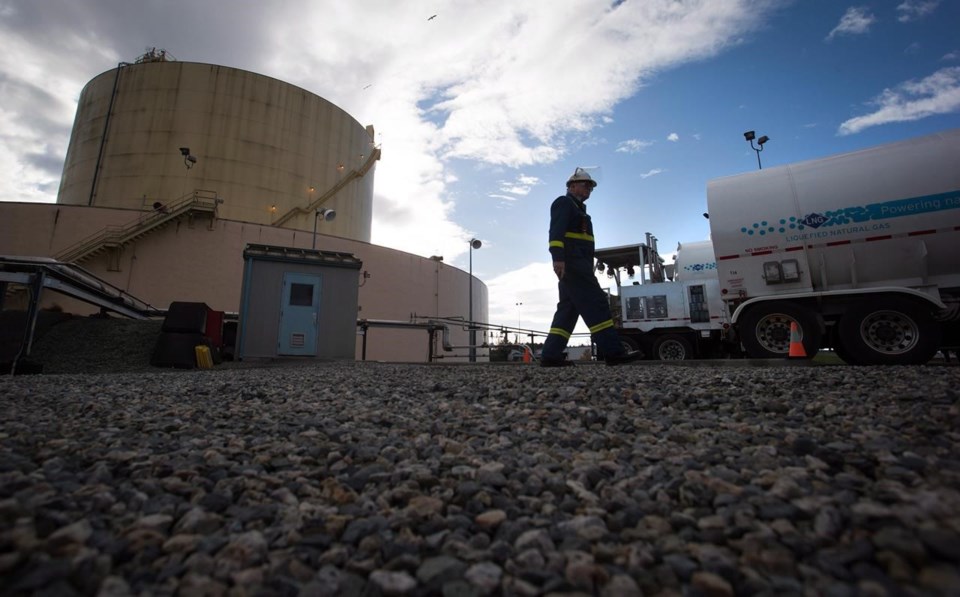VANCOUVER — An environmental group is suing British Columbia natural gas utility FortisBC, accusing it of "greenwashing" its product through advertising, making the company seem more environmentally friendly than it is.Â
The lawsuit was launched by the Stand Environmental Society, also known as Stand Earth, alleging FortisBC’s ads exaggerate claims around the amount of renewable natural gas in its system when the majority of it's gas is from fossil fuels.Â
Lawyer Andhra Azevedo told a news conference Tuesday that the lawsuit alleges Fortis is misleading consumers in its advertising by emphasizing its renewable natural gas supply as being part of a climate solution while not mentioning that 90 per cent of the gas in its system is fossil fuel produced primarily from fracking in northern B.C.Â
"The case alleges that these ads, along with other claims by FortisBC, can mislead consumers into connecting to, or staying connected to, gas rather than choosing a climate solution like an electric heat pump that can also provide cost savings for many consumers in B.C. over time," she said.
The lawsuit says FortisBC has committed "deceitful acts," violated consumer protection laws, and it asks a judge to order the company to issue "corrective advertisements," and be prohibited from making the misrepresentations in future ads.
None of the claims have been proven in court.Â
FortisBC said in a statement that it disagrees with the allegations in the statement of claim and that it conducts itself in accordance with its legal obligations.Â
"FortisBC always works to protect the environment, whether by helping customers reduce their GHG emissions, progressing initiatives to lower our own operational GHG emissions or implementing new environmental protections," it's statement said.Â
The documents filed in B.C. Supreme Court say Fortis misrepresents that the business and its products align with climate targets set by the province.Â
The legal action says the company is wrongly implying that its products are cheaper than using electrical heat pumps and that its renewable natural gas product is certified carbon neutral, but even high-efficiency gas furnaces have higher greenhouse gas emissions than heat pumps.Â
Penticton resident Lorraine Goldman, who is one of two B.C. residents also listed as plaintiffs in the case, said Tuesday that she called Fortis to buy renewable natural gas thinking it was a "great idea" but learned that it was impossible for her to get only renewable gas.
"As long as I'm connected to gas, I will get fossil fuel delivered to my home whether I paid for (renewable gas) or not," she said.
Azevedo said the case alleges FortisBC advertises its renewable natural gas as coming from "local" sources when the majority is purchased from outside the province.Â
The lawsuit also alleges Fortis has falsely said that it's renewable natural gas is certified as carbon neutral.
"In filing this case, the plaintiffs, our clients, are not seeking any money from Fortis," Azevedo said.
Instead, she said they want the court to declare that FortisBC has engaged in deceptive conduct, and make an order that the utility has to advertise any court finding to let consumers know, allowing them to make decisions about their energy costs and climate impacts.Â
This report by The Canadian Press was first published March 26, 2024
Ashley Joannou, The Canadian Press



